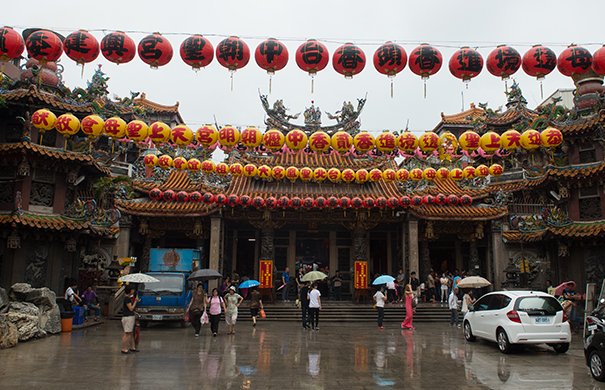
Becoming a Missionary, Missionary Life
Why Does God Use Missionaries?
June 14, 2018
by Kate Hanson

My co-worker and I had everything set to start our mom’s club. The moms were eager, and we’d found a popular American Christian parenting book that’s available in both Chinese and English.
But as the weeks went on, I noticed something strange. We enjoyed good fellowship with the moms, but they all seemed to avoid talking about the content of the book — the very thing I’d hoped would lead to deeper spiritual conversation.
Finally, I got more pointed with my questions: “In this part, he’s talking about how important it is to cultivate an internal system of self-control in our children so that when the external forces dictating their behavior are gone, they still make good choices.”
Silence.
That’s when it dawned on me: This book was written from an American “guilt culture” perspective, in which cultural conformity is maintained through the individual’s internalization of the moral code. You do what’s right because it makes you feel good.
However, the women in our group are all from Taiwanese “honor/shame culture,” where conformity to cultural norms is maintained through external pressures. You do what’s right to avoid bringing shame on yourself or your family.
In short, it doesn’t matter if you translate the book into the Chinese language because the cultural perspectives don’t easily translate into Taiwanese culture.
Why Deal with Cultural Barriers?
More than once on the mission field, I’ve wondered, Why again does God use cross-cultural missionaries? Wouldn’t it be simpler if God just used locals to draw people into His Kingdom? Why risk confusing the Good News of the Gospel with cultural or language barriers?
To get some insight into my question, I started asking fellow missionaries in all stages their careers this question: Why does God use missionaries?
Their answers have strongly reinforced that the Great Commission was not just directed at the first disciples as a way of inviting Gentiles into the Kingdom of God, but that missionaries are part of God’s great plan until He returns.
Here are some of the many beautiful answers these brave and obedient missionaries gave:
1. God is after the hearts of the missionaries themselves.
By calling us out of our comfort zone and into a place where we have to rely on His grace, not theoretically, not in times of crisis, but on a daily basis, we learn to trust Him in a way that may not be possible in our home culture.
2. It makes us shed our cultural perspective.
By calling Christians from different cultures together to read and respond to the Bible together, we are all forced to lower the lens of our cultural perspective and separate it from God’s unchanging truth.
This is a messy process, and this is why I think we have had some trouble. Just because our cultural perspective says something is right, that does not make it biblical truth. The Bible is relevant to all readers at all times regardless of their background.
3. We aren’t bound by the same things.
The missionary can go against cultural norms in a way locals can’t illuminate a contradiction to Scripture in the host culture. This is best done in one of two main ways.
In hierarchical and honor/shame contexts, missionaries can violate cultural norms by lowering themselves in status. Admitting faults, confessing sins and refusing to take advantage of pastoral roles can make for a powerful testimony.
As missionaries build relationships, they can also confront cultural norms with their friends. As locals understand your heart, they’ll realize you aren’t trying to attack their culture; you’re trying to help their people. And with that understanding, they may be willing to hear what you have to say.
4. It keeps the global Church from stagnating.
Global missionaries help to keep the fountain of the living water fresh and flowing, not only in the community they are going to, but also the communities they came from. One missionary described it as cross-pollination. It helps to keep the pool of believers both from the sending culture and the receiving culture from stagnating.
When we read Paul’s letter to the Philippians today, we are basically reading a letter he wrote to a supporting church. A missionary’s ministry extends across their network to bring all people closer to the glory of God.
5. It helps us get out of our ministry boxes.
When people have known you forever, they may design expectations for what you can or should do — expectations that don’t always line up with God’s call. Sometimes, it’s easier to step out of the box when those people aren’t around to push you back in. One missionary quoted Luke 4:24: “‘Truly I tell you,’ he continued, ‘no prophet is accepted in his hometown.’”
6. Because God asks us to.
The words of the Great Commission are as true today as they were 2,000 years ago: “Go and make disciples of all nations.” Do we need another reason?
Has God called you to missions? Are you ready to find out? Talk with a TEAM missions coach today to help you navigate your next steps.


